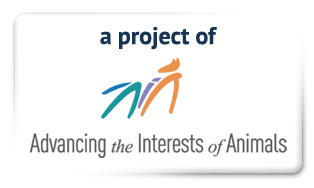Podcast: Play in new window | Download
Subscribe: RSS
We begin speaking with Wayne Pacelle about pending legislation in both the House and Senate, the FDA Modernization Act, which would eliminate the animal testing mandate for development and approval of new pharmaceutical drugs for human use.
Mr. Pacelle, as President of Center for a Humane Economy, Founder of Animal Wellness Action, and CEO of Animal Wellness Foundation, as well as former CEO of The Humane Society of the United States, is diligently working to garner support for these bills. He is arguably the county’s most effective lobbyist for animal welfare laws in the US.
Under the current regulations, in the 83 year old the Federal Food Drug and Cosmetics Act (FFDCA), the FDA requires testing on animals as part of the requirements to get a new drug approved for use in humans. This is clearly outdated and antiquated for many reasons including that testing on animals often does not produce results applicable to humans. Consequently, potentially useful drugs never make it to human use (due to the drugs failing animal testing), and other drugs go on to harm and kill people after having been deemed safe in animal tests. Furthermore, when animal testing is utilized, drug development costs are raised, contributing to the high prices of new prescription drugs. And of course, the incredible scope of animal cruelty in these tests is well documented. So, at long last, there is a real opportunity to modernize the way drugs get developed and approved and now is the time for all of us to take action!
First, read more about the bills at Center for a Humane Economy. Then contact both of your US senators and your house member and urge them to support the FDA modernization Act! The Senate bill is S. 2952, and the House bill is H.R. 2565. Write, call, email or fill out the form linked here which makes it quick and easy – and share it widely, too.
Then, did you know that 2 states, Virginia and California, now have laws requiring shelters and rescue group which adopt out dogs, to share the dogs’ “bite history” if known, to the potential adopters? Lori believes that in principle, such laws are a good idea because more information about the dogs’ history should lead to better matches between adopters and dogs. However, determining the true and complete history of dogs’ prior lives can be near impossible. And, saying a dog has bitten in the past automatically stigmatizes the dog in the eyes of many, even though the circumstances surrounding the alleged incident are unknown. For instance, if a child pulls the tail of dog, frightening the animal, who then spins around and nips the child, can the dog be blamed? Another regrettable phenomenon is the imprecise use of the word vicious. A dog who has bitten is often wrongly called a vicious dog, which lessens the dogs’ prospects for adoption, and raises its chances of being euthanized.
So, whether and how to provide histories to potential adopters is a complex issue. For now the best we can do is to remind or educate adopters that they need to be realistic and adaptable.
There is a little story, apropos here, where a woman asks her Vet, “Is there any chance my dog will bite?” The Vet replies, “Does he have teeth?”




Leave a Reply